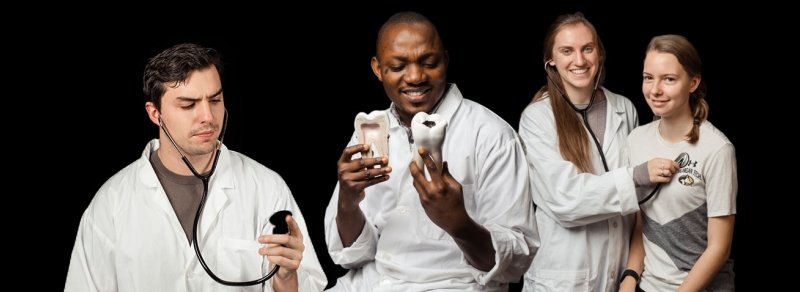If you are interested in pursuing a career in health professions, Michigan Tech can help you make the first step into your future. The Department of Biological Sciences for more than a quarter century has launched students into health professions careers. Our graduates are regularly accepted into all six of Michigan's medical schools as well as other schools around the nation. If you choose to earn a BS in Biological Sciences with a pre-professional concentration, you will gain a strong foundation in natural sciences through laboratory investigations and all-season field work. The curriculum is designed to meet prerequisites for medical, dental, optometry, veterinary, pharmacy, physical therapy, physician assistant, and other graduate-level professional schools.
You can also choose to major in medical laboratory science, an option that prepares you to work in a hospital laboratory, performing analyses on blood, tissues, and other bodily fluids to detect diseases. It is one of the fastest growing health professions, with an estimated 380,300 open positions within the next five years. Our students benefit from hands-on, case-based instruction. Many students receive multiple job offers. Our program has a 100 percent job-placement rate, so you can directly enter the workforce or choose to continue your education in a graduate-level health program.
If you choose to major in biochemistry and molecular biology or computational biology, you will research the molecular basis of life and harness computing power to solve complex problems in genetics and genomics. Completion of the human genome creates countless opportunities in prognosis, diagnosis, and treatment of human diseases. Our faculty and staff provide dedicated, rigorous preparation for the career path you choose.
No matter which major you choose, our core curriculum provides you with a strong, diversified education in the life sciences, and our other degree requirements provide a solid foundation in the physical sciences and mathematics. Also available are elective courses such as hematology, immunology, medical bacteriology, virology, human nutrition, parasitology, cardiopulmonary physiology, pathophysiology, and current health issues.
Each degree also has a number of free electives. We encourage our pre-health professions students to take elective course work in the humanities and social sciences for a well-rounded education. Popular choices for our students include bioethics, sociology, abnormal psychology, and cognitive psychology.
